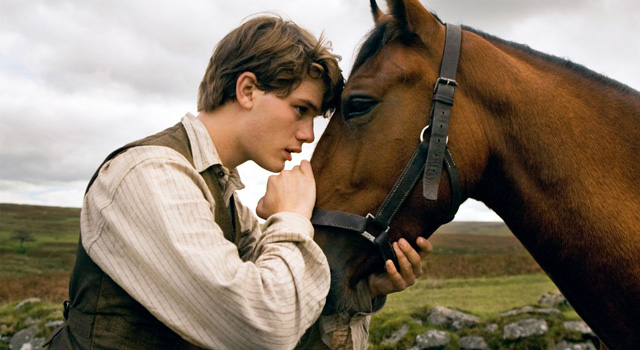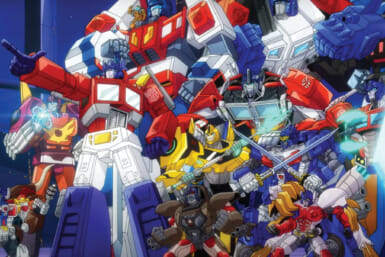Spielberg’s latest is no ‘Schindler’s List’
War Horse is Steven Spielberg’s third major war film to be nominated for Best Picture at the Academy Awards, after ‘Saving Private Ryan’ (1999) and ‘Schindler’s List’ (1994), but this time the setting has shifted from the World War II to World War I.
The two stars of the film are young farmer’s boy Albert Narracott—played by Jeremy Irvine—and his horse, which he names ‘Joey’.
The boy and his horse are introduced early on and as Albert watches the animal grow, he tries his best to befriend it. Albert’s drunken father, Ted (Peter Mullan) buys the horse against the advice of his despairing mother (Emily Watson), and plunges the family into debt, unless the boy can train Joey and plough the family farm.
All does not go to plan however and the father is forced to sell the horse to the army as war is declared. ‘Joey’ then travels across France, serving the British, French and German armies along the way.
The film opens in pre-war England with pictures of rolling countryside and quaint rural life. These scenes, reminiscent of the Hobbit village in The Lord of the Rings, may look pretty but comes across as too glossy and ends up being unbelievable. This superficiality runs through the characters of the film too; people tend to be good or bad, kind or cruel, demanding of our sympathy or our scorn.
It’s this simplicity that undermines the film, as the audience always knows what they are supposed to feel in each scene, making it too hard to truly believe in the characters or situations. John Williams score also feels heavy-handed in its demand for the viewer’s emotions.
The film is based on a children’s book, written by Michael Morpurgo and a later stage version of the same name, which may explain the linear nature of the plot but this makes it a very different film from Spielberg’s two previous award-winning efforts, having none of the weight of those earlier films.
Scenes involving a horse-led charge on a German position and of British troops going over the trenches into machine-gun fire look good but they have none of the impact of, say, Saving Private Ryan’s famous Normandy beach landing scene.
This film is ultimately the story of a boy and his horse, not an insight into the men fighting in the Great War. Seen on these terms, it is successful, if overly sentimental, as the horse is increasingly made to suffer before the final and predictably emotional climax in no-man’s land.
If you can suspend your belief in the implausible story and swallow the relationship between the boy and his horse this film is enjoyable, but it’s not up there with Spielberg’s best.
War Horse will be released in Japan on March 2.
Text by Christopher O’Keeffe.









